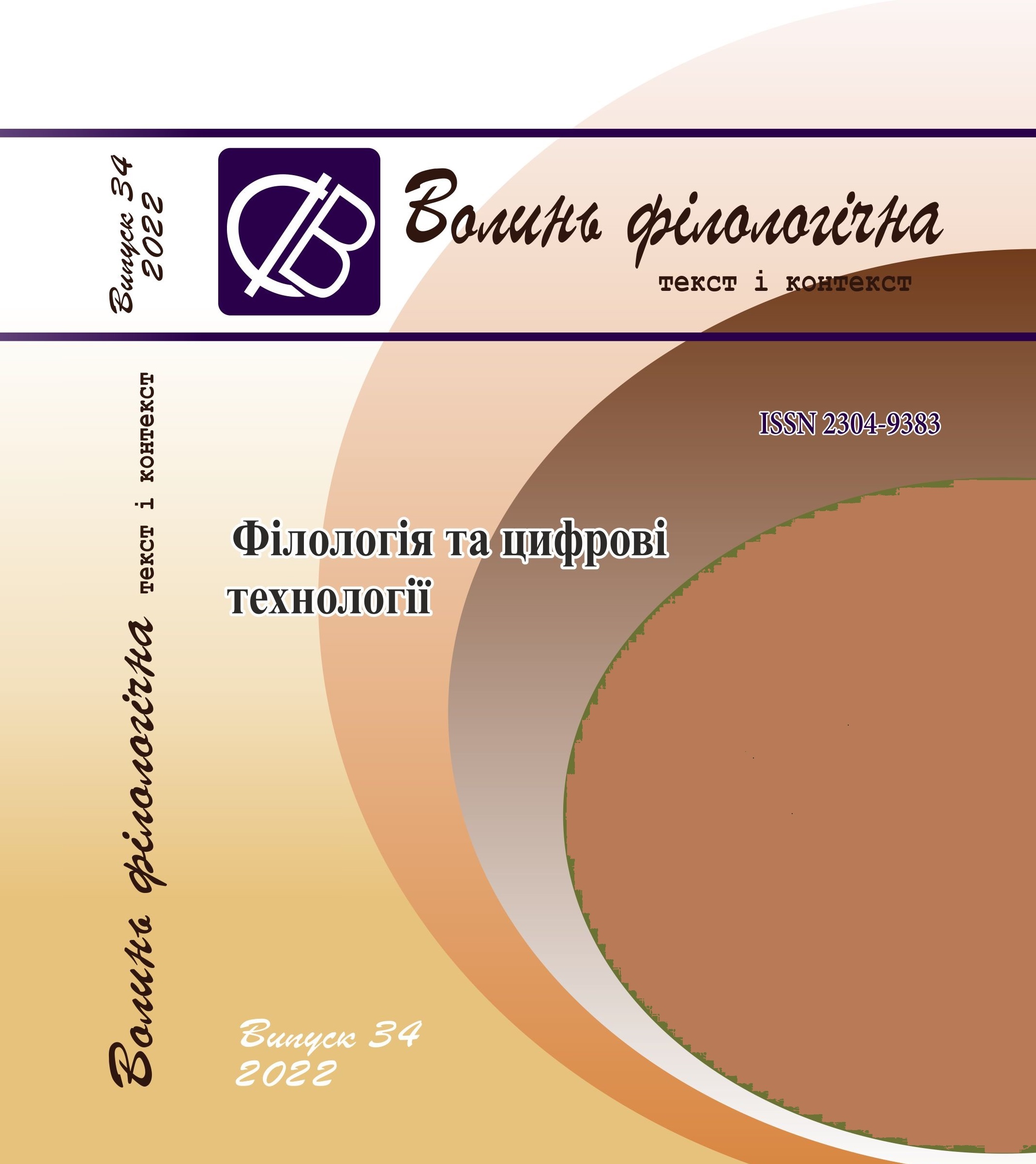Application of the Digital Method in Teaching Philological Disciplines (on the Example of a Virtual Lexicographic Laboratory)
Keywords:
digital methods of linguistic research, corpus technologies, multimedia dictionary, theory of lexicographic systems, artificial intelligence, machine learning, neural networksAbstract
The article describes the virtual lexicographic laboratory "Multimedia Dictionary of Infomedia Literacy" as a digital tool for teaching philological disciplines. The article presents the application of digital methods for teaching philological disciplines, using the example of a virtual lexicographic laboratory. This virtual laboratory is used for processing and visualization of digital linguistic information. Among the digital methods for teaching philological disciplines, we especially mentioned the lexicographic method of research, its meaning, feasibility of application, features of implementation and further use in all-Ukrainian and European cooperation.
The purpose of the proposed work to present the virtual lexicographic laboratory "Multimedia Dictionary of Infomedia Literacy" in the teaching of philological disciplines as one of the main methods for researching digital linguistic information. The laboratory is used to process digital linguistic resources and to create relevant software products within the framework of all-Ukrainian and international cooperation. The scientific novelty of the research lies in the practical proposal of new methods of teaching in higher education.
The results of the work made it possible to establish the main methods of digital linguistic research, which are appropriate to use for the study of language material. In the group of presented methods, the main ones are highlighted: statistical, corpus, lexicographic research method based on the theory of lexicographic systems, and the methods of artificial intelligence: machine learning, deep learning and neural networks.

